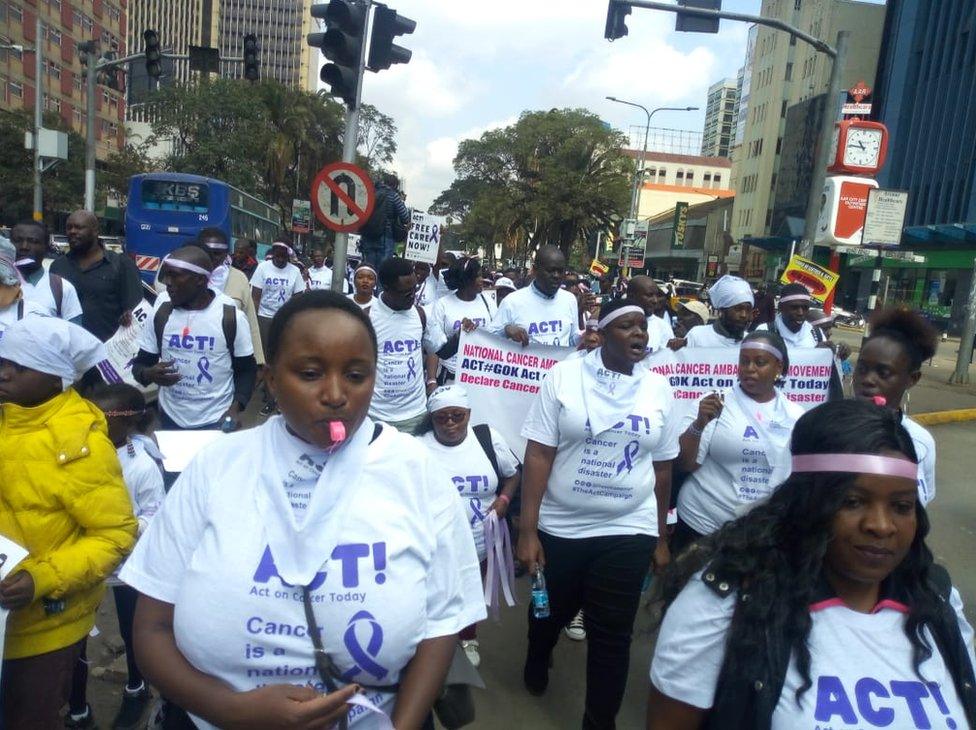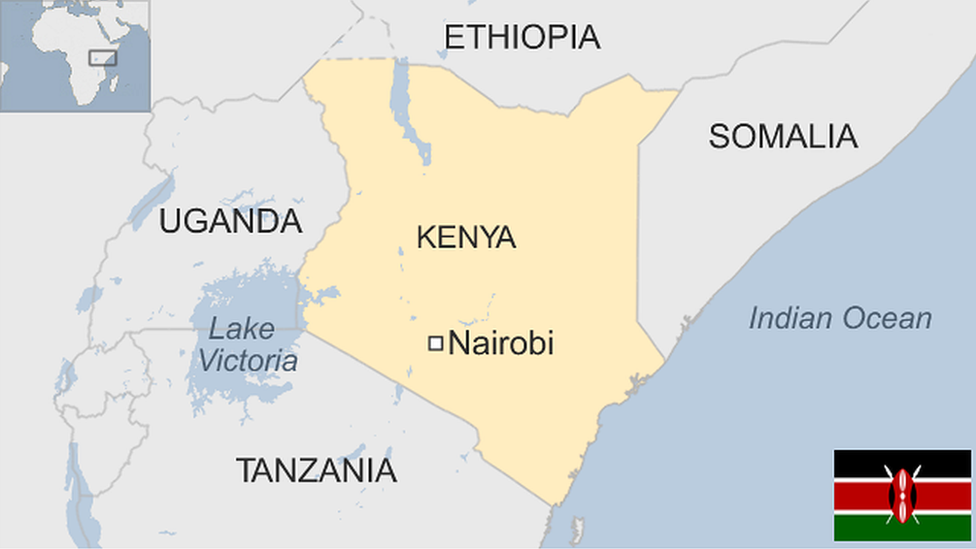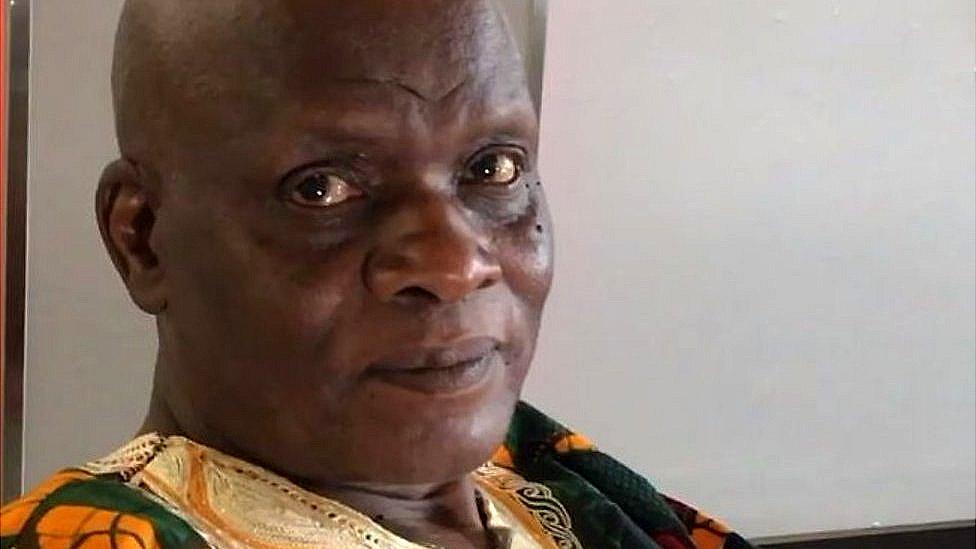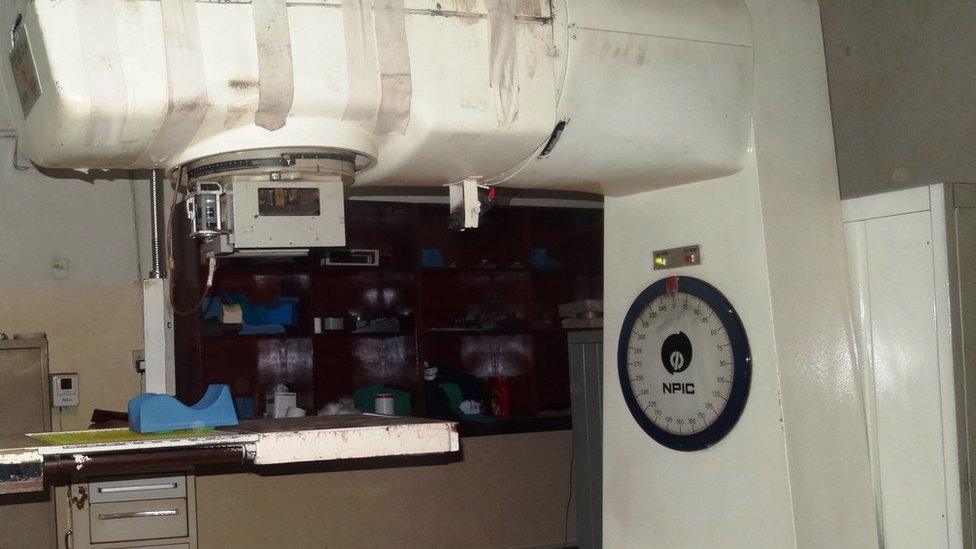Kenyan survivors: Cancer is 'national disaster'
- Published

Demonstrators want affordable treatment, more cancer specialists and better-equipped hospitals

Cancer patients and carers are calling on Kenya's government to declare the illness a "national disaster" and provide extra funds.
Protesters took to the streets of the capital, Nairobi, in matching T-shirts that read Act on Cancer Today.
They say long delays caused by a lack of accessible and affordable treatment mean many patients' conditions worsen.
Three recent high-profile deaths drew attention to cancer in Kenya which has 35 oncologists for 40 million people.
This means there are more than 3,000 cancer cases for each oncologist in Kenya, compared to less than 150 in the US and China, external, according to the Journal of Global Oncology.
For cancer patients living outside big cities like Mombasa and Nairobi, there are few hospitals equipped to deal with their specific needs.
Last month saw the cancer-related deaths of Bob Collymore, CEO of telecoms giant Safaricom, and politicians Joyce Laboso and Ken Okoth.
Around 30,000 people die from cancer every year in Kenya, the government says. Like many other developing countries, the increasing number of cancer patients is putting additional strain on health services.
Chemotherapy is not generally available in the public health service, external, according to the World Health Organization.
The government has pledged to set up more chemotherapy and radiotherapy centres across the nation, but for many Kenyans the treatment in the private sector is far too expensive.
Those who can afford it sometimes prefer to travel abroad for treatment, with many going to India.
Screening for cancer is often happening too late, say patients, and getting a diagnosis can be a challenge.
"At first the hospital told me they didn't know what I was suffering from," Joan Wangare, a pancreatic cancer survivor, told the BBC.
"But I thank God that, because I started the treatment early, I was able to overcome it."

Myths and misconceptions
Mercy Juma, BBC Africa, Nairobi
There is some awareness about cancer in Kenya but mostly in the urban setting.
In the rural areas there is lack of information and a lot of misinformation too. Myths and misconceptions exist, as well as stigma.
It is estimated that 70-80% of patients diagnosed with cancer in Kenya are at advanced stages, with high rates of misdiagnosis and inadequate screening hindering early detection.
There have also been questions about the follow-up of patients who are found to have cancer after screening.
Kenya carries the regional cancer burden too, being a neighbour to countries like South Sudan which does not have even a single oncologist and where the only available treatment for cancer is surgery.
The Kenyatta referral hospital, which has only three radiotherapy machines, also serves patients from Uganda, Burundi, Rwanda and South Sudan.
This makes waiting times even longer. Within the country, people often have to travel hundreds of kilometres to access the services at the referral hospital.

- Published4 July 2023

- Published30 October 2018

- Published15 April 2016
